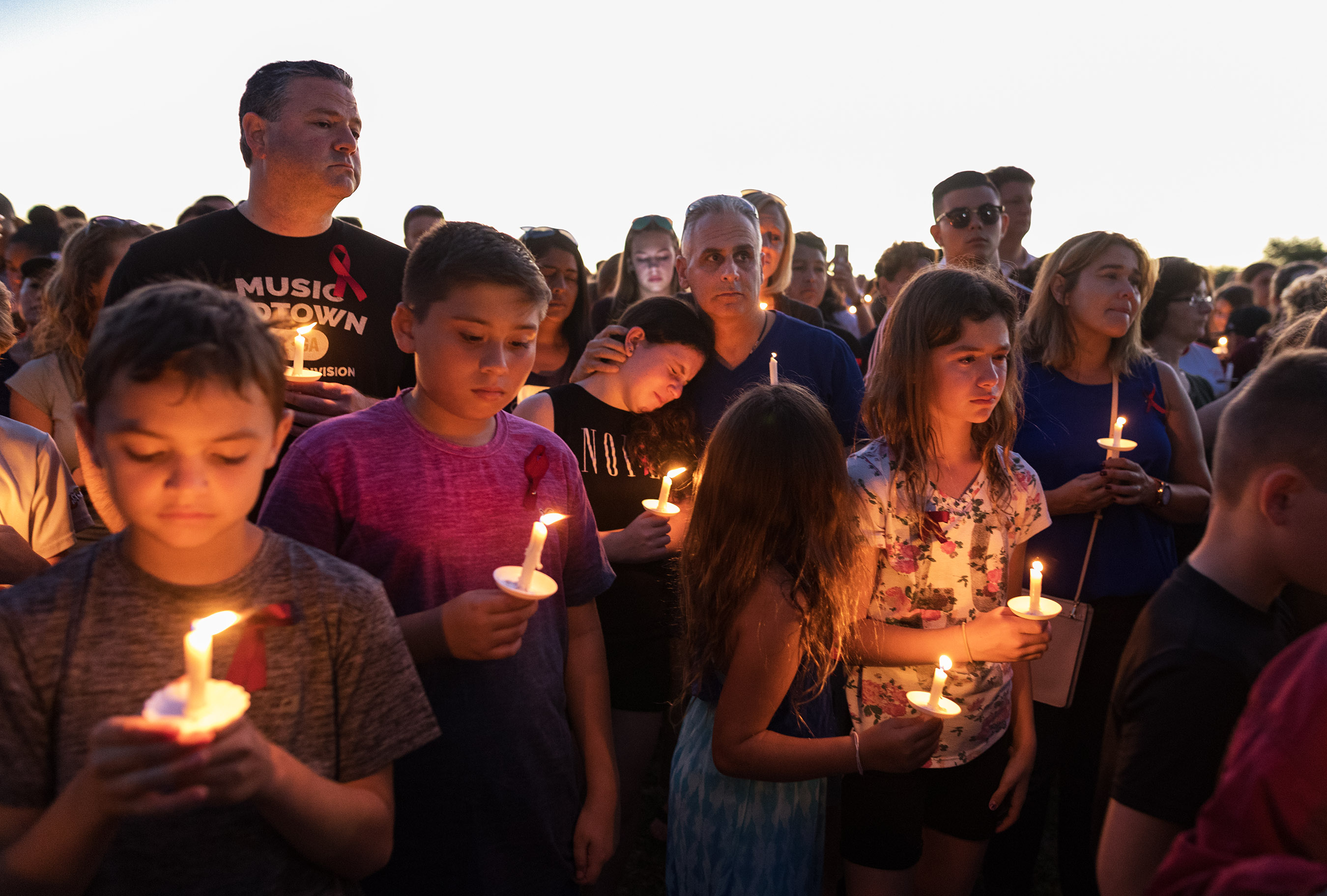
By ESTHER GONZALES
MAHWAH- One year ago, the busy chatter of high school students was broken with the sound of gun shots firing through the air. The shooting, that left 17 dead and 17 wounded at Marjory Stoneman Douglas High School in Parkland, Florida, is only one of the many events that has sparked revolution and change in activism for gun control laws throughout the United States.
An inside look
Grim statistics show in 2018 there were a total of 94 school shootings, a term that has become common for students to hear. Below is a brief timeline starting after the Parkland school shooting:

Amid the grief and heartache that surrounded the Parkland community, there was an unspoken call to action. Several students began organizing rallies and protests, traveling as far as Washington D.C. to petition for stricter gun laws. Soon, a social movement was born and its presence spread around the United States.
March for our Lives
On March 24, 2018, a few shorts weeks after the tragedy, over 200,000 people gathered throughout the streets of Washington D.C. with over 800 other marches taking place across the states. Organized by one of the survivors of the shooting, the marches gained attention on social media and with the press. Thousands of banners were held high in the air. Slogans written across the small pieces of cardboard begged for action from the government.
#NeverAgain leader Emma González spoke for 6 minutes and 20 seconds at the #MarchforOurLives DC rally – the time it took for the Parkland shooting to happen. pic.twitter.com/Sn75XDQQhS
— BuzzFeed News (@BuzzFeedNews) March 24, 2018
Somber Memorials
Every year, as the number of school shootings climb, the climate for change builds as well. With 300 rallies in the month of February of last year alone, students, teachers, friends and family members gathered to raise their voice amidst the chaos of their broken nation.

Rallies are often held on the anniversaries of school shootings, such as last year on April 20, which marked the 19th anniversary of the Columbine High School shooting. In New Jersey, Indian Hills High School in Oakland, held a protest open for the public to join. Chanting loudly in unison, students stood in the cold weather for hours as cars passing by honked at their signs in agreement. The students also set aside time to listen to one another speak about creating stricter gun regulations.
This year, on Feb. 14, students from Parkland came to together to tell their stories. As the government seeks to find solutions, so do the children and teenagers who may still live in fear. They have taken a huge responsibility into their owns hands to ensure their voices are heard by creating national organizations and movements.
Recent Incidents in New Jersey
Although there are no reported school shooting incidents recorded in New Jersey from 1990 to the present, on October 2018, Koeberle Bull, a new Jersey resident and mother of three children, received a racist message via social media targeting her biracial children. Following her instincts, Bull called Kentucky police, who tracked down the man. He was found, with a gun, 200 rounds of ammo, and a detailed plan of attack on a local school in Lexington, Kentucky, and arrested.
Although Bull was thousands of miles away, she potentially saved hundreds of lives and prevented a school shooting. In her community she was dubbed a hero, although she simply said she is just a mom.
Voices of Ramapo College: A Conversation with Three Students
“[After Parkland] my high school added a second set of security doors for the main entrance,” said Kyra Zwahlen, a transfer sophomore student at Ramapo College, in a conversation with two other students. “They have lanyards now to identify the kids. So, it’s maybe a step in the right direction, maybe not.”
“My high school, Pompton Lakes, was actually rated the safest school in America because the police department is in our parking lot,” said Brianna Otto, a sophomore student at Ramapo College.
“Guns aren’t the root of the issue, I think,” added Otto. “Gun control is important, yes. There should be background checks and limits, but it’s not the root of the issue. There are so many variables.”
“That’s why it’s important to pay attention,” said Deanna Penna, a junior at Ramapo College. “One of the things I want to do with my law degree is become an advocate for people with mental illness so they get the help they need.
“I think the root of the problem is people, in general. They will always disagree and I think that’s what justice is about; you have to find your medium,” Penna added.
“Part of the problem too,” said Zwahlen, “is how the media celebritizes the perpetrators. A lot of people do it to become famous. The shooter’s name gets plastered all over the news and they say very little about the victim.”
Jono Crefeld and Chris Komjian, two seniors at Ramapo College, created For our Lives, a documentary for their film class that shows a small glimpse of America’s journey to freedom.
“We’ve made this documentary,” said Komjian, “to show what can happen when people come together and to inspire people to keep making their voices heard until the necessary change is a reality.”
Although change may be on the horizon and some strides have already been made, fear and anxiety still face every student in a classroom.
I really thought this was organized well especially since it is such a complex topic with a lot of information available due to the amount of shootings our country has had already. I liked how you implemented the local aspect too because you found a way to make it relevant to us even though New Jersey doesn’t have a lot of recent school shootings. The accounts from the students here were quite interesting to read and the documentary was a great asset!